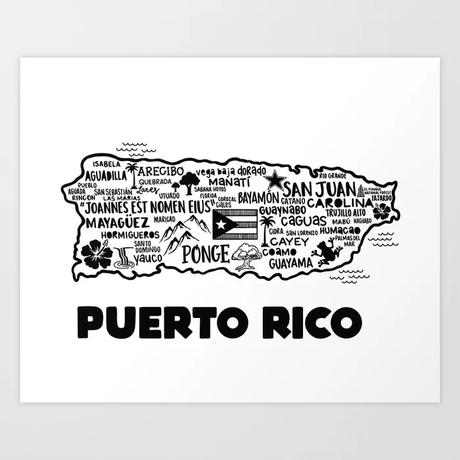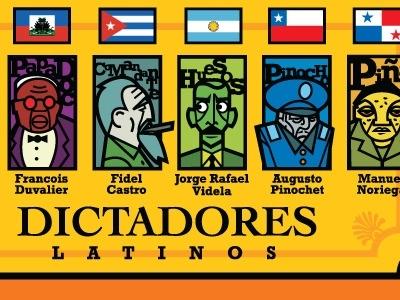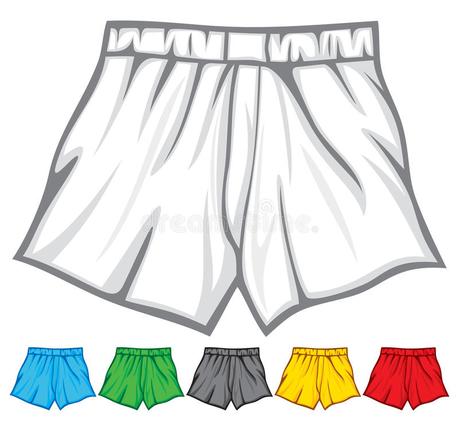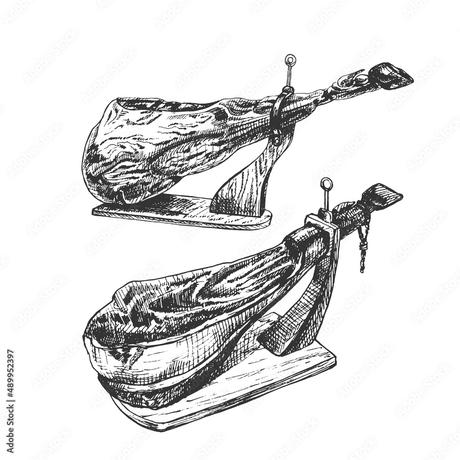
Puerto Rico, in English, means "rich port."
"Some joke, huh?" cracked Sonny under his breath. "If the port was so freaking rich, why did thousands upon thousands of Puerto Riqueños leave such a marvelous place? Must've been good for the pirates, you know? The guys who plundered the Spanish Main, like in those swashbuckler movies, 'Treasure Island,' 'Captain Kidd,' 'The Sea Hawk,' 'Blackbeard the Fucking Pirate,' and all that crap!"
Sonny's family never found any buried treasure in the South Bronx, and certainly not in Puerto Rico. Oh, and about that popular nickname, "La Isla del Encanto," Sonny always had the same adverse reaction: "Tell me, if it was so damn enchanted, why not stay there and try to make something of it?" That's a question Papi could never answer. No one could.
Sonny knew that. He knew it for as long as he could remember. But it never stopped him from asking. For years, Sonny continued to pose that question to his father, hoping one day that Papi would provide him with a different response. And, no, he was not insane. Just insistent.
"Papi, how come we came to America? What's wrong with our staying in P.R.?" But all Sonny would get in reply were shoulder shrugs and Papi's hand waving in his face. After a while, Sonny stopped asking.
Sonny knew about Cuba and Haiti, too, but he also made reference to (and damned sure to include) the nearby Dominican Republic and other Latin American "republics" in his endless diatribes.

Rogues' gallery of Latin American Dictators
"Those countries all had dictators," Sonny reasoned, "military strongmen, the kind that used to rob people blind, steal their money and their property, while living high on the hog with their ill-gotten gains." They drove out the aristocrats, "Los Ricos Bandidos," as Sonny phrased it, the ones who screwed the masses but royally. "Then," he would go on, "along came the Batistas, the Trujillos, the Duvaliers, the Castros, the Pinochets." They resumed their thieving ways, stealing the rich people's money and giving it to the poor and needy: namely, to themselves.
"Reverse Robin Hoods, Papi," Sonny called them. "Can't you see? Trujillo, Papa Doc, all those freaking bastards, they gave away a fortune to their own children," even if it wasn't theirs to give.
"So, maybe they weren't so bad?" That was the general argument some people made with themselves, including Sonny's Papi. They used it to justify all the thievery, all the willfully blind, misplaced faith in their leaders' methodology.
"That's not a good answer," Sonny would counter.
"Nice to know they could be so magnanimous," came the expected reply, an illogical justification for blatant malfeasance. Nothing could move these folks; and nothing could change their minds either. They were convinced their "glorious leaders" had done the people some good. They were the true believers, sorry to say, as blind as bats to what the bastards had done. And they remained blind to the bitter end.
"What about the Puerto Ricans?" Sonny continued, pressing his argument about as far as it could go. "What's their friggin' excuse?" He was trying to figure that one out for himself.
After decades of futile attempts, and as far as he had any right to knowledge of, things hadn't gotten any better for the poor of Puerto Rico either, which is why they had come to New York. "Oh, pardon me! The South Bronx." As Jay Black and the Americans used to say, "Only in America, land of opportunity. Yeah, ah, ah..."
Many years later, when folks pressed him about that so-called "enchanted island" of his, Sonny, now a senior citizen and semi-retired, never bothered to respond. He shrugged his soft, sagging shoulders and waved his wrinkled hand in the air, dismissing their queries as if he were swatting a million mosquitoes.
They stopped asking. Like father, like son.
------

"Papi, why do men from Puerto Rico always walk around in their boxer shorts?" No response. Sonny was under the impression that only tired old farts (like his dad) wore those baggy excuses for underwear. You know, los viejitos and los abuelitos, or maybe some great, great abuelitos. As usual, Sonny was mistaken.
He asked Papi again why he wore them.
Papi sighed as he responded. "I feel comf-table in them."
Comfortable? With his wanger and cojones dangling about like an elephant's ears and trunk? Not that Papi's bicho looked anything like Jumbo's - the farthest thing from it! But just the thought of his father's pipi bouncing back and forth, from left to right, with his nuts jiggling along in time to his feet, like portable maracas, made Sonny want to puke.
Maybe that was the idea. Let it all hang out, huh? Some kind of macho thing, is that it? Hell, it was always a macho thing with these men. And, yes, especially men of the Puerto Rican persuasion.
"Uh, Papi, why do you wear that? What's wrong with the nice, tight jockey underwear Mami got you last Christmas? They're the latest thing! And a heck of a lot easier on the eyes. They feel like part of your skin, a part of your soul, you know? - shoot, the best part."
Papi took a long time to answer. When he finally did say something, Papi explained to Sonny that he would rather wear boxer shorts than jockeys, mostly because, "When I was small, wearing the boxers showed I grew up. I was a real man" - even if he hadn't yet reached puberty. Did that make sense? Not to Sonny.
Puerto Rican men could be extremely macho, and at all the wrong times. There were guys in their neighborhood who liked to play their Latin salsa in two ways: louder and loudest. This "bugged the crap out of Papi," as Sonny remembered it. So much so that Papi would bang on the walls of their living room, or on the ceiling above their heads, to call the noisy neighbors' attention to the racket.
"It's a macho thing," Sonny sighed. Always, a macho thing.
One night, during the summer heat wave, instead of banging on the ceiling, Papi decided to pay a visit to his upstairs neighbor to complain about the noise. He called on a guy named Jamón, which means "ham" in Spanish. That was the sound Sonny thought he heard mentioned.
It turned out the man's name was Ramón Jimenez. Ramón came from Guaynabo. If there's anything you need to know about the people from Guaynabo, it's that they can't stand the folks who come from Bayamón, geographically speaking their next-door neighbors. That's where Papi came from, Bayamón. There was a sort of rivalry there, or bad blood of some kind, like the Savage Skulls with the Savage Nomads. Two rival gangs, both vicious and hard-headed, the living, fire-breathing embodiment of their monikers.
About five or ten minutes passed before Papi returned to the apartment. From the looks of it, Papi's encounter did go as well as he had planned. To lighten the atmosphere around his father's wild mood swings, Sonny would often make fun of Papi's pals, or he would make up silly nicknames for the neighbors. Like that noisy fellow, Mr. Ramón. On a whim, Sonny tagged him with "Jamón de Bayamón." The "Jamón" part stuck.

The proverbial "Spanish Ham," or Jamon from Bayamon
Papi didn't think it was funny. Not funny at all. Still, Sonny pressed him for the details as to why.
"What's wrong with it, Papi?" Sonny asked, mostly to annoy him. And to see how far he could go with his joke.
"Don't call him that!" Papi shouted. "You kids should know better! He's a sick guy, sick in the head, is what!" Besides, Papi hated the nickname, "Jamón de Bayamón." He thought it was rude and disrespectful.
"It's a joke, Papi," Sonny insisted. "Just a little joke."
"I got no more intimacy with that guy. You don't neither! And you right about that," Papi hollered back, in his thick Puerto Rican accent. "It's a very leetle joke." The "Joke" part came out sounding odd, as if he had said "choke" by mistake.
"Joke, Papi! Joke!" Sonny hollered back at him, emphasizing the "J" for all it was worth. "I'll try better next time, okay?"
"No! 'Cause there ain't gonna be no 'next' time," Papi bellowed. "Next time, I break you face! That sound like a little joke to you?" Papi jumped out of the couch and stormed off to the bedroom.
Sonny turned serious. "Hmm, that's a pretty snappy comeback," he admitted to himself. But Papi meant every word of it. After considering the alternatives, Sonny did not want to antagonize his father any further than he did, or get the "old man" any more riled up than he already was. Lesson for the day: Never mention your father's underwear, not for any reason. That's one of those "off" topics. Out of sight, out of mind.
"No! 'Cause there ain't gonna be no 'next' time," Papi bellowed. "Next time, I break you face! That sound like a little joke to you?" Papi jumped out of the couch and stormed off to the bedroom.
"Wonder why Papi was so mad," Sonny mused. "That big fat guy, Ramón. Man, that guy's heavy. That's why they call him 'Jamón.' Like a big, fat piece of days-old ham. That's what he is, he can't help it. What's the big deal?" Sonny shook his head.
As he made his way to his own room, Sonny heard his father's voice. Papi was talking to himself, repeating the same word, over and over and over again. " Desgraciado... desgraciado ..."
What was so disgraceful?
"More macho stuff," Sonny sighed to himself. Yeah, always a macho thing.
Copyright © 2022 by Josmar F. Lopes
